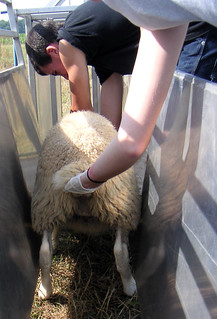One of the methods for determining anthelmintic (dewormer) resistance is the Fecal Egg Count Reduction Test (FECRT). Fecal samples from individual animals are compared before or after treatment or to a control group after treatment. It is recommended that at least 15 animals be sampled.
As an alternative to individual fecal samples, researchers at the University of Georgia compared using pooled composite samples with individual samples. The results of their research were recently published in the Journal of Veterinary Parasitology, "Using composite fecal samples when testing for anthelmintic resistance in gastrointestinal nematodes of cattle."
Their research showed the mean fecal egg counts from the composite and individual fecal samples to be 98.9% in agreement. The fecal egg count reduction of the composite and individual samples was 95.9% in agreement.
The researchers concluded that composite sampling is a practical tool for producers to assess resistance and that is should improve parasitological testing among producers. Methods of composite sampling are discussed in the article.
Read journal article


No comments:
Post a Comment